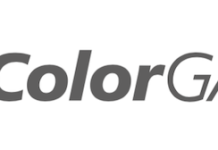During EFI’s Engage virtual conference, Micol Gamba, EFI Reggiani product and marketing manager, discussed trends and developments in the textile industry.
A prominent trend is sustainability, and the buzzword is ‘green’. It began as a slogan or form of ‘greenwashing’, but now sustainability is increasingly becoming a compelling requirement to compete. ‘In the last few years, it has become a commitment, and a perspective. It is not just a nice word, but a true direction for development for new businesses,’ said Gamba.
Governments are paying growing attention to water usage and emissions, new consumers are making conscious choices – seeing sustainability as a lifestyle choice, and brands are applying certified green processes and product-sustainability labels. Younger generations are particularly conscious of this, which factors into their purchasing power. Circularity, recycling and re-use of fibres was also emphasised, which Gamba explained is crucial to textiles.
Advanced materials is another emerging trend, especially those with antibacterial properties. The importance and awareness of this trend allows businesses to take advantage of a crisis and deliver materials that are truly needed all over the world.
Supply-chain transparency and traceability are also crucial aspects, where consumers have the assurance that what they are wearing has been produced according to ethical standards and not just environmental standards. ‘Transparency and traceability will grow,’ said Gamba.
Acceleration of purchasing done online over the past year reflects the continuously growing trend in digitisation. ‘This is an area that was not so prominent in many countries as far as textile products are concerned – the majority preferred to try on new clothes, or to feel the fabric.’
On demand manufacturing and Web2Print is tied to the rising awareness of consumers. ‘Consumers are really empowered, they are the creative brains of their own style.’ This is further tied to trends of personalisation and on demand collections, with speed and agility required.
Other trends include reshoring and near-shoring, diversification and localisation, which is driving the redistribution of supply chains globally.
Last, but not least, was Industry 4.0 and Artificial Intelligence, ‘the frontier area where the textile industry will need to invest further’. This is really meant to drive the industry in the direction of self-analysis, creating augmented realities and ensuring connectivity across different regions of the world.
EFI
www.efi.com















